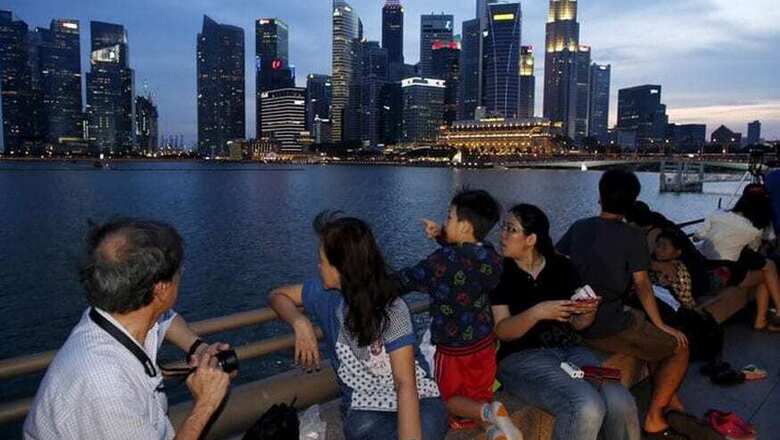
views
Singapore: Singapore passed a law on Wednesday making it possible to ban photographs or videos of terror attack sites or communicating information about security operations amid criticism from rights groups that the move could curb press freedoms.
The wealthy city-state ranks as one of the safest countries in the world, but authorities say it has been a target of Islamic extremists since the 1990s and they have stepped up efforts to deter an attack.
The bill, proposed last month, includes provisions to ban anyone from taking videos or photographs of the area of a terror attack or transmitting them.
It can also ban communication of text or audio messages about the security operations in the area. The measures can be taken under a "communications stop" order if approved by the home affairs minister and activated by the police commissioner.
"The CSO (communications stop order) is not an information blackout throughout the terror incident," Josephine Teo, minister in the Prime Minister's Office, told parliament ahead of the vote.
Information leaks to terrorists could risk the lives of security officers and those caught up in an attack, the home affairs ministry has said, citing media coverage of police operations in a 2015 attack in Paris and a 2008 attack in India's financial capital of Mumbai.
Groups that advocate press freedom have expressed concern that the law gives the government the power to restrict what can be reported.
Human Rights Watch separately said the inclusion of public protests as an example of a "serious incident" meant the law can be used to infringe on freedom of speech.
Anyone planning a public protest is required to obtain a police permit in Singapore and are only allowed at a designated area in a small downtown park. Only Singaporean citizens and permanent residents can participate.
“The Singaporean government’s history of persecuting dissenting voices makes the proposed public order law particularly frightening,” Asia director at Human Rights Watch Brad Adams said in a press release last week.
"Public protests are not a threat that justify the wholesale repeal of basic rights."
Breaches of the new measures could lead to a maximum fine of S$20,000 ($15,200) and prison terms of up to two years.
The passage of the security law comes as Singapore holds a landmark public hearing on how to tackle the threat of fake news.

















Comments
0 comment